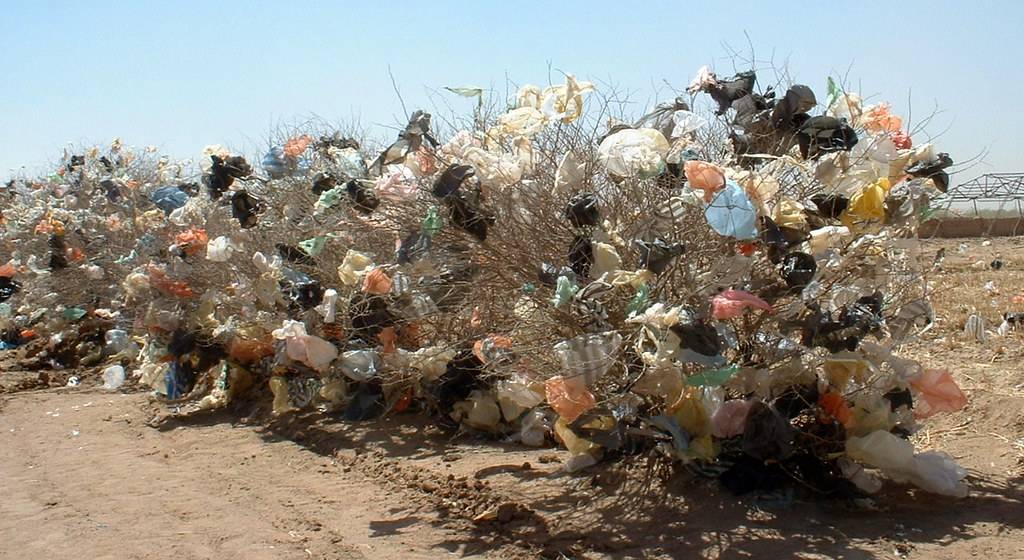
World Environment Day: A United Global Stand Against Plastic Pollution While Sudan Struggles With Conflicting Interests
Sudan Media Forum – Joint Newsroom
By Madiha Abdallah – Al-Alq Center for Press Services
What do the Mariana Trench - the deepest point in the ocean- and Mount Everest - the highest peak on Earth - have in common? Despite being among the planet’s most remote and inaccessible places, both contain tiny plastic fragments, the result of decades of human activity. Over the past seventy years, plastic has infiltrated global markets and permeated every corner of the Earth. While plastic has undeniable benefits, unnecessary plastic products continue to pollute the planet, triggering a host of problems. (Adapted from the UN Environment Programme)
Every year on June 5, the world observes World Environment Day, focusing on urgent environmental threats. In 2025, the theme is “Beat Plastic Pollution”-a call for global institutions and communities to unite against the plastic crisis.
The theme was carefully selected just two months ahead of an international UN-hosted meeting involving multiple stakeholders, aiming to draft a legally binding agreement—The Global Plastics Treaty. The treaty seeks to combat plastic pollution through global coordination and governance and aims to eliminate plastic waste at every stage of its lifecycle-from production to disposal. Negotiations currently involve 175 countries.
This treaty will establish a global framework to support national plastic reduction efforts, ensuring effective coordination. According to Break Free From Plastic (Nov. 2024), it could complement the Basel Convention on plastic waste trade by offering a more comprehensive approach to plastic pollution.
Chemical Risks to Human Health
Studies show that hazardous chemicals in plastic can seriously harm both humans and the environment. According to CNN (June 2023), a study on chemical risks linked to plastics identified over 3,200 concerning substances among more than 7,000 associated with plastic. Exposure can lead to neurological damage, reduced fertility, cardiovascular diseases, hormonal disruption, and liver and lung cancers.
Sudan: Plastic Pollution and Conflicted Interests
Most Sudanese are painfully familiar with the sight of plastic bags entangled in trees, shrubs, and fences, scattered across neighborhoods by wind and rain. Though several Sudanese states have attempted to ban plastic bags, efforts have been undermined by political and economic interests. According to Sudan Tribune, in 2016 the Minister of Environment supported petrochemical plant owners, citing their 200 million investment. The head of the Petrochemicals Chamber complained of state-level resistance to factory appeals and emphasized that over 100 factories employ more than 10,000 workers. The secretary-general of the Industrial Chambers Union noted that manufacturers pay taxes and that over 3,000 workshops produce plastic products.
In 2018, a national campaign was launched to combat plastic pollution. According to Xinhua News Agency, official data then estimated around 180,000 tons of plastic waste in Sudan—a significant environmental hazard.
Yet, the plastic bag ban was never enforced due to several factors:
Influence of factory owners
State reluctance, as they rely on plastic industry taxes
Deliberate market manipulation by traders, which raised bag prices and fueled public outrage
Lack of alternatives and enforcement mechanisms
Social media activists blamed economically powerful stakeholders for sabotaging the ban, while experts called for stricter regulation on plastic production. (Source: Sudan News, September 2018)
Recycling Plastic Waste: A Proposed Solution
Osman Mohamed Ahmed, Secretary-General of the Environmentalists Association in Kampala, explains that plastic waste kills many plants and animals and can block soil-to-root nutrient flow. Floating plastics create breeding grounds for parasites harmful to both humans and animals.
“In Sudan,” he adds, “goats often consume plastic, which leads to fatal outcomes. Waste management must be handled carefully.” He advocates for a return to traditional alternatives such as reusable baskets and cloth bags and calls for strict legislation against illegal plastic use.
Osman recalls a successful precedent: Gedaref State once enacted a strict anti-plastic law, but enforcement has since waned. He suggests that Sudan adopt a nationwide approach-either a full ban or mandatory recycling—as the most effective way to manage plastic waste.
--
This report, prepared by Al-Alq Center for Press Services and published by the Sudan Media Forum and its member organizations, aims to raise awareness of the severe environmental threats posed by plastic bags. Experts propose solutions such as promoting sustainable alternatives and enacting enforceable regulations.


